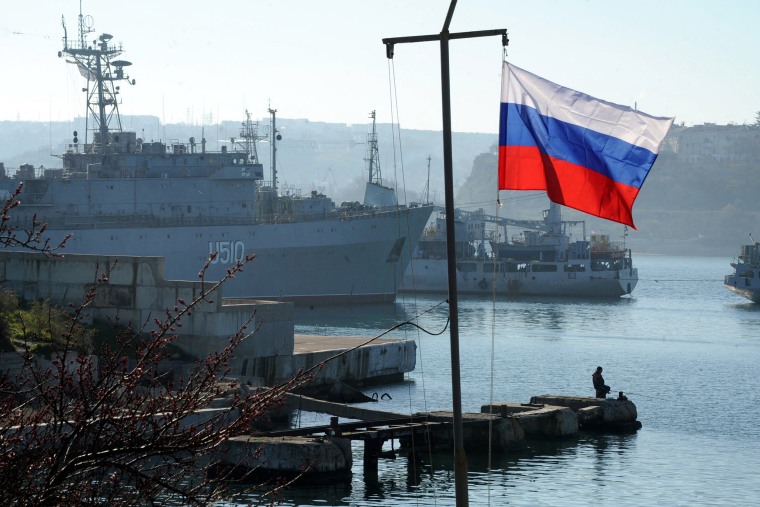All this is a far cry from the peninsula’s history as the home of the Crimean Tatars, a Turkic-speaking Islamic ethnic group whose roots in the region can be traced to the start of the 15th century.
They were persecuted for centuries by the Russian Empire after it seized the peninsula in 1783. And following several rounds of mass deportations, they have since been replaced by Russian speakers, outnumbered 13% to 76% in a population of 2.2 million.
“It is not only land,” said one Crimean Tatar, 30, who works as a civic activist and asked to remain anonymous to protect their family on the peninsula. “If we refuse to fight politically for Crimea, it will be also a sign that it is fine to kill people, change geopolitical laws, steal land and start wars.”
Many Tatars would like to see Crimea return to Ukrainian control, with Joseph Stalin’s 1944 mass deportation of their people still in living memory.
In 1954, Nikita Khrushchev, then the leader of the Soviet Union, transferred Crimea to what was then the Soviet Republic of Ukraine. When the USSR broke apart in 1991, Crimea slipped out of Russia’s orbit, becoming part of the newly independent Ukraine.
For Putin, who believes the Soviet collapse was “the biggest geopolitical catastrophe of the century,” taking Crimea in 2014 was righting a historical wrong.
“As far as most Russians are concerned, whether they support or despise Putin, Crimea is Russian,” said Mark Galeotti, director of the consultancy Mayak Intelligence. “I was living in Moscow when Crimea was annexed, and the enthusiasm was astonishing, with people partying all night.”
For most of the rest of the world — including the U.S. — it was an illegal occupation, with only a handful of countries such as North Korea and Sudan disagreeing. In 2018, Trump’s then-secretary of state, Mike Pompeo, said Washington rejected “Russia’s attempted annexation of Crimea.”

That’s what makes Trump’s reversal of that position so striking.
“Crimea will stay with Russia,” he told Time magazine on Friday.
When asked Sunday whether Zelenskyy was ready to give up Crimea, Trump told reporters, “Oh, I think so, yeah.”
That would be a dramatic reversal for the Ukrainian president, who has previously said there is “nothing to discuss” when it comes to allowing Russia to annex parts of his country. Even if he wanted to, Article 2 of Ukraine’s constitution says its “inviolable” borders can only be changed by a parliament-granted referendum, and not during its current state of martial law.
Some within the Trump administration don’t appear optimistic that success is imminent. Vice President JD Vance told Fox News on Thursday that the war is “not going to end any time soon.”
Russia currently controls around 20% of Ukraine following its full-scale invasion in 2022. But for many Ukrainians, Crimea holds a singular status.
“Crimea is a test for principles, resilience and dignity,” said the Crimean Tatar civic activist. “Not only for Ukraine, but also for the entire civilized world.”


Leave a Reply